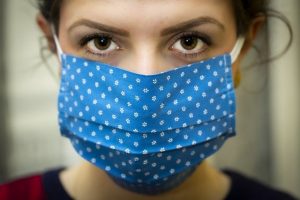It’s exasperating, maddening and distressing all at once; the nasty effects of atopic dermatitis – from dry, flaky skin to welted and weeping skin rubbed red and raw from itching – are becoming more prevalent in adults than ever before, even though atopic dermatitis was once viewed as a condition that mainly affected children.
Atopic dermatitis doesn’t only affect the skin. With a painful and worrying range of skin symptoms sufferers can also commonly be affected by a lack of sleep from itching and scratching, which can affect their health, morale and activity levels.
According to the American Academy of Dermatology, atopic dermatitis is much more widespread than even 30 years ago. In some cases it is thought to be hereditary, particularly if a parent has suffered from allergies such as hay fever, or asthma. However pollution and colder climates are also thought to increase the prevalence of atopic dermatitis, as are dry climates, irritating fibres such as wool, long hot showers and baths and the lack of moisturising creams one might use afterwards.
One study as reported in the Toxicological Research journal found that while the causes of atopic dermatitis are not entirely understood that the increase in people experiencing symptoms can be generally attributed to exposure to environmental irritants, such as air pollutants, chemicals and food and personal care ingredients, rather than genetic developments.
Some widely used skincare ingredients are especially known to exacerbate skin conditions– even though they might be marketed to help conditions such as such as atopic dermatitis. Common ingredients found in skincare products that can irritate and inflame skin include fragrance, parabens, isothiazolinones, formaldehyde and formaldehyde releasers, iodopropynyl butylcarbamate, and methyldibromo glutaronitrile. Remember to also steer clear of Sodium Laurel Sulfate, Polyethylene glycol (PEG) and PPGs (propylene glycol or 1, 2 propanediol).
If you suffer from atopic dermatitis it’s important you use good quality, natural skincare products that protect and nourish your skin, free from chemicals that will aggravate your condition. A strong skincare routine is vital to keeping your skin lubricated and healthy, while taking care to avoid other environmental irritants that may cause your condition to flare up. Check out our range to find a product that suits you.
This post appeared first on the Bee Loved Skincare blog.




